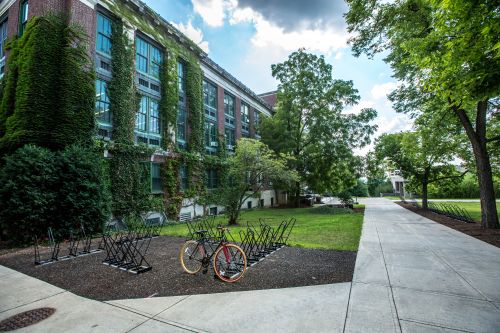
Massachusetts Institute of Technology (MIT) in Cambridge, Massachusetts, is a private university. MIT is known for progressive advances in technology and inventive thinking. With a competitive acceptance rate and reputation for academic excellence, students may feel pressure to perform. This rigorous academic environment may cause students to make poor decisions. A violation of the MIT academic integrity code is taken seriously. What should a student at MIT do if they are caught cheating, plagiarizing, or collaborating? Read on for the answer from a defense attorney for students.
What are considered violations of the MIT academic integrity code?
Some violations that constitute academic dishonesty include:
- Plagiarism
- Paying another student to complete an assignment or exam
- Buying an assignment or exam database
- Unauthorized collaboration
- Cheating on a test
- Alteration of graded exams and then submitting for regrading
- Turning in the same work to two classes
- Helping another student cheat or plagiarize
How will a student at MIT know they violated the academic integrity policy?
The student be contacted by the Office of Student Conduct. The meeting with the office will give the student details about the alleged violation. Students are also allowed to refute the charges. According to the policy, student should be well prepared for this hearing. Why you ask? Because the information given the Office of Student conduct will be passed onto the Chair of the Committee of Discipline. The Chair can resolve the allegation by finding you not responsible and if they do find you responsible, decide a sanction. If they decide not the handle the allegation administratively, the student will face a panel hearing.
What happens at a MIT sanctioning panel Hearing?
This panel hearing is like many other university hearings. The student is given the chance to present their evidence, make statements, and ask and answer questions.
Can you serve as my adviser at my MIT sanctioning panel hearing?
No. MIT specifically restricts attorneys from acting as an adviser for academic misconduct issues.However, even though MIT restricts my participation in the sanctioning panel hearing, MIT allows students to work with attorneys outside of the actual hearing. My preparation of statements, questioning, evidence presentation and more gives students the best chance at a positive outcome.
What types of punishment can a MIT student get if they are found responsible for an academic integrity violation?
The sanctioning panel decides the sanction for a student. At MIT, there are a range of sanctions from a student file reprimand up to expulsion and degree revocation.
Can I appeal a sanction from the sanctioning panel?
Yes. After a student receives a decision from the Honor Council, they have business days to submit a written appeal to the Chancellor. Students should also note that like many other universities, MIT limits appeals to just a few categories of issues:
- New information
- Procedural violations
- Finding is not supported by the presented evidence
- Harshness of sanction
These limited categories make winning an appeal a challenge. I write disciplinary sanction appeals for students. Utilizing my skills as an appellate attorney, I have a keen eye for issue spotting and crafting persuasive arguments that fit these limited categories.
Can you help me fight my academic violation at MIT?
Yes. I assist students throughout the United States to defend against accusations of academic misconduct. Using my nearly two decades of legal experience combined with unique knowledge of the student disciplinary process, I give MIT students the best chance at a positive outcome.
Call now for a free consultation.855-338-5299
Richard Asselta is an award-winning attorney who assists MIT students facing accusations of academic dishonesty. Call today to avoid suspension or expulsion from the Massachusetts Institute of Technology. Click here to read what clients are saying about Richard on AVVO, an attorney review website. https://integrity.mit.edu/handbook/academic-integrity-mit/what-are-consequences https://studentlife.mit.edu/osc/students/i-received-letter-osc https://studentlife.mit.edu/osc/faculty/academic-misconduct http://cod.mit.edu/rules/section12
